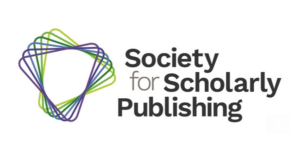Annotation in Scholarly Publishing at SSP 2017
 Join Hypothesis CEO Dan Whaley and Director of Partnerships Heather Staines at Society for Scholarly Publishing 2017 to explore how standards-based, interoperable annotation increases reader and researcher engagement in scholarly content. Learn how annotation works with other new technologies and practices to reshape scholarly publication, transforming how people create, discover, and read content.
Join Hypothesis CEO Dan Whaley and Director of Partnerships Heather Staines at Society for Scholarly Publishing 2017 to explore how standards-based, interoperable annotation increases reader and researcher engagement in scholarly content. Learn how annotation works with other new technologies and practices to reshape scholarly publication, transforming how people create, discover, and read content.
Annotation sessions with Hypothesis will include a panel on how annotation is part of a general movement in scholarly publishing toward the use of distributed web technologies and how annotation enables dynamic scholarly conversation that brings formerly static published content alive.
Not able to make it to Boston? Join the SSP 2017 virtual session, which will include a live, virtual demonstration of Hypothesis along with other previews of what’s new across the industry. Or reach out to us at partners@hypothes.is and we’ll be happy to tell you more.
SSP 2017 Annotation Sessions
Breaking Free of the Platform: Journals Leveraging Distributed Web Technology
Thursday, 1 June, 10:30am-12:00pm ET
- Tiffany Bogich, Science.ai
- Bert Carelli, TrendMD (moderator)
- Paul Kudlow, TrendMD Inc.
- Dan Whaley, Hypothesis
- Kristen Fisher Ratan, Collaborative Knowledge Foundation (CoKo)
- Jeff Spies, Center for Open Science
- Paul Shannon, eLife Sciences Publications, Ltd
Scholarly journals have traditionally relied on large-scale online platforms for digital distribution of journals whether provided by large publishers (Elsevier, Wiley) or independent (HighWire, Atypon). Platforms have traditionally provided technical and commercial infrastructure, as well as cross-journal linking and communities of interest for societies within similar disciplines. XML standards, new discoverability technologies, and the growth of Open Access are reducing the need for much of that infrastructure and its high overhead cost. So will these newer technologies that enable distributed networks make the traditional hosting platforms obsolete? This panel discussion will include representatives of technology companies and not-for-profit initiatives that are disrupting every phase of content creation, hosting, and discoverability. Participants will include both technology providers and publishers who have taken advantage of these technologies, including representatives from eLife, TrendMD, Hypothesis, Open Science Framework, Public Knowledge Project, and Collaborative Knowledge Foundation.
Web Annotations: Enabling Universal Discourse around Scholarship
Thursday, 1 June, 4:00-5:30pm ET
- Karen Estlund, Penn State University Libraries
- Dan Whaley, Hypothesis
- Bill Kasdorf, Apex CoVantage, Content Solutions (moderator)
Scholarly communication on the Web has moved from simple publication of static content to engagement with scholars in an interactive and participatory environment. Scholars are seeking research tools and feedback in an ongoing, collaborative process. This session will discuss outcomes from two technically focused communities approach to fulfilling that need. The Annotating All Knowledge project, a coalition made up of many of the world’s key scholarly publishers, platforms, libraries, and technology organizations, is an innovative initiative that is enabling rich and respectful discussion via web-based annotations. IIIF, the International Image Interoperablity Framework, is a community of over 600 international cultural heritage organizations, national libraries, research institutions, museums, technology firms and aggregators that is using standards to provide dynamic access to image-based content for both the results and objects of scholarship, also built around the notion of annotation. After a discussion of the use cases that brought the communities together and a demo of the free, open-source, standards-based technologies these projects are using to create a dynamic, interoperable context for scholarship, the speakers will engage with the attendees to learn how the scholarly community would like to see these projects evolve to improve the ability for scholars to communicate about and interact with their digital content.
Previews Session: New and Noteworthy Product Presentations
Friday, 2 June, 9:00-10:30am ET
The Previews Session is designed to offer attendees the chance to hear and learn about the newest and most innovative products, platforms, and/or content affecting our industry. Speakers will be organized in a lightning round format with each organization allotted 5 minute, back-to-back presentations. Attendees will leave with exposure to a wide breadth of new and updated products that will lead the future of the scholarly publishing community that will certainly spark ideas for your own organizations.
- Moderator: David Myers, DMedia Associates, Inc.
- Presenters:
- Liran Belenzon, BenchSci
- Betsy Donohue, UberResearch
- Jacob Flindt, MedArkive
- Michelle Hache, NEJM Knowledge+
- Ian Hames, PSI
- Jennifer Kemp, Crossref
- Richard Kobel, ConSCIse
- Tim Lloyd, LibLynx
- Pierre Montagano, Code Ocean
- Joy Moore, Zapnito
- Nicola Poser, RedLink
- Sadia Shahid, wizdom.ai by colwiz
- Heather Staines, Hypothesis
- Erich van Rijn, University of California Press
- Charles Watkinson, University of Michigan Press
- Jacob Wilcock, Atypon